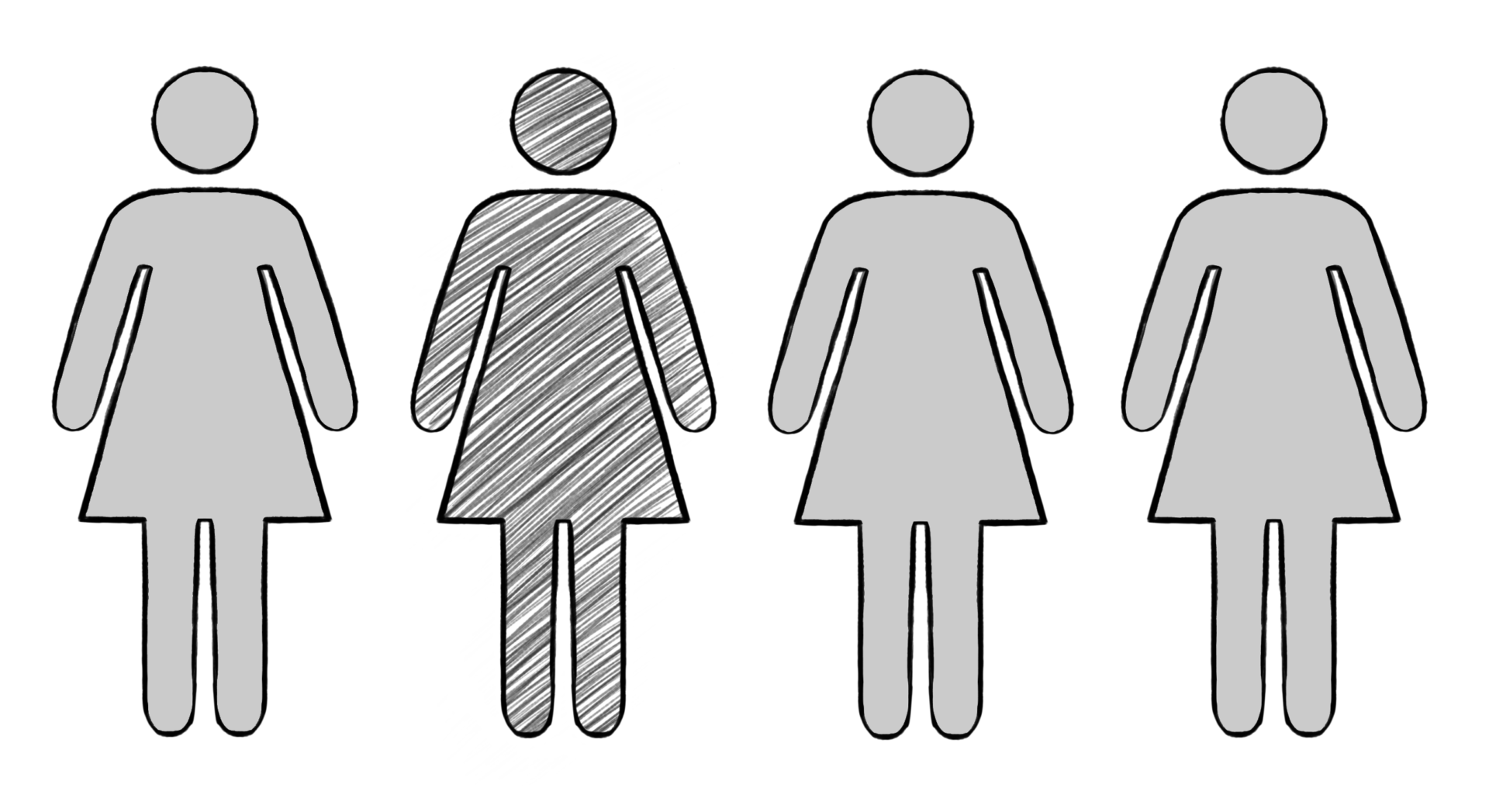
The month of February will mark the 20th annual national eating disorder awareness month and the past year has done much to emphasize the cause. The campaign’s mission is to change the stigma and provide resources about eating disorders. While eating disorder awareness is important any day, month or year, this particular month holds great importance to many.
Eating disorders are frequently misunderstood and often go undiagnosed. Anyone can have an eating disorder, regardless of age, gender, sexuality, weight, race or socioeconomic status. The National Association of Anorexia Nervosa and Associated Disorders reports that around 9%, or roughly 30 million, Americans will have an eating disorder in their lifetime. The most frequently diagnosed eating disorders include anorexia nervosa, bulimia nervosa and binge eating disorder.
Throughout the COVID-19 pandemic, eating disorders have been a concern for many. Lockdowns have presented new challenges for those who are struggling with eating disorders or were in recovery prior to the pandemic. The closed gyms, change of routine and lack of activity have all triggered a wave of worry around body image.
Life under quarantine has contributed to higher levels of stress, depression and anxiety for many, and those with eating disorders remain highly vulnerable to relapsing or worsening severity. Unfortunately, resources for assistance, such as counseling and rehabilitation, are scarce during the pandemic. According to a recent BioMed Central survey, four out of five people who self-reported an eating disorder experienced worsening symptoms when the lockdowns started.
Others may have started experiencing eating disorder symptoms during the pandemic. The National Eating Disorders Association reported a 78% increase in calls to its helpline since March 2020.
This year, eating disorder awareness advocacy groups have not only emphasized the lack of supply for treatment, but treatment inaccessibility for BIPOC individuals. There is a consistent yet false stereotype that those struggling with an eating disorder are white and affluent. According to a National Eating Disorder Association study, members of the BIPOC community are significantly less likely than white people to have been asked about eating disorder symptoms. The same study also found that Black teenagers are 50% more likely to exhibit bulimic behavior than white teenagers.
If you are worried that a friend may be struggling with an eating disorder, Lewis & Clark’s Welfare Intervention Network (WIN) can be consulted. The network is a team of LC professionals who coordinate to get students the help they need if their well-being may face a potential health risk.
There are also various resources at LC’s Wellness Center for students who think they may be struggling with an eating disorder. For example, the website offers an anonymous, confidential online screening where individuals who think they may be struggling with eating or body image issues can get the support they need. LC’s Office of Case Management, overseen by Amy Milne, also helps students find off-campus therapists, physicians and dietitians.
Eating disorder awareness month is for everyone, regardless of if one has struggled with an eating disorder or not. The most important thing anyone can do is educate themselves about eating disorders. The more one knows about these harmful illnesses, the better prepared one will be to recognize warning signs and assist someone who is struggling. Due to the current circumstances, we live in a strange and isolated time. Unfortunately, eating disorders thrive in that same isolation.
To report a concerning situation or find more information about WIN visit www.lclark.edu/about/welfare_intervention. The online screening can be found at screening.mentalhealthscreening.org/lclark.
Subscribe to the Mossy Log Newsletter
Stay up to date with the goings-on at Lewis & Clark! Get the top stories or your favorite section delivered to your inbox whenever we release a new issue.

Leave a Reply